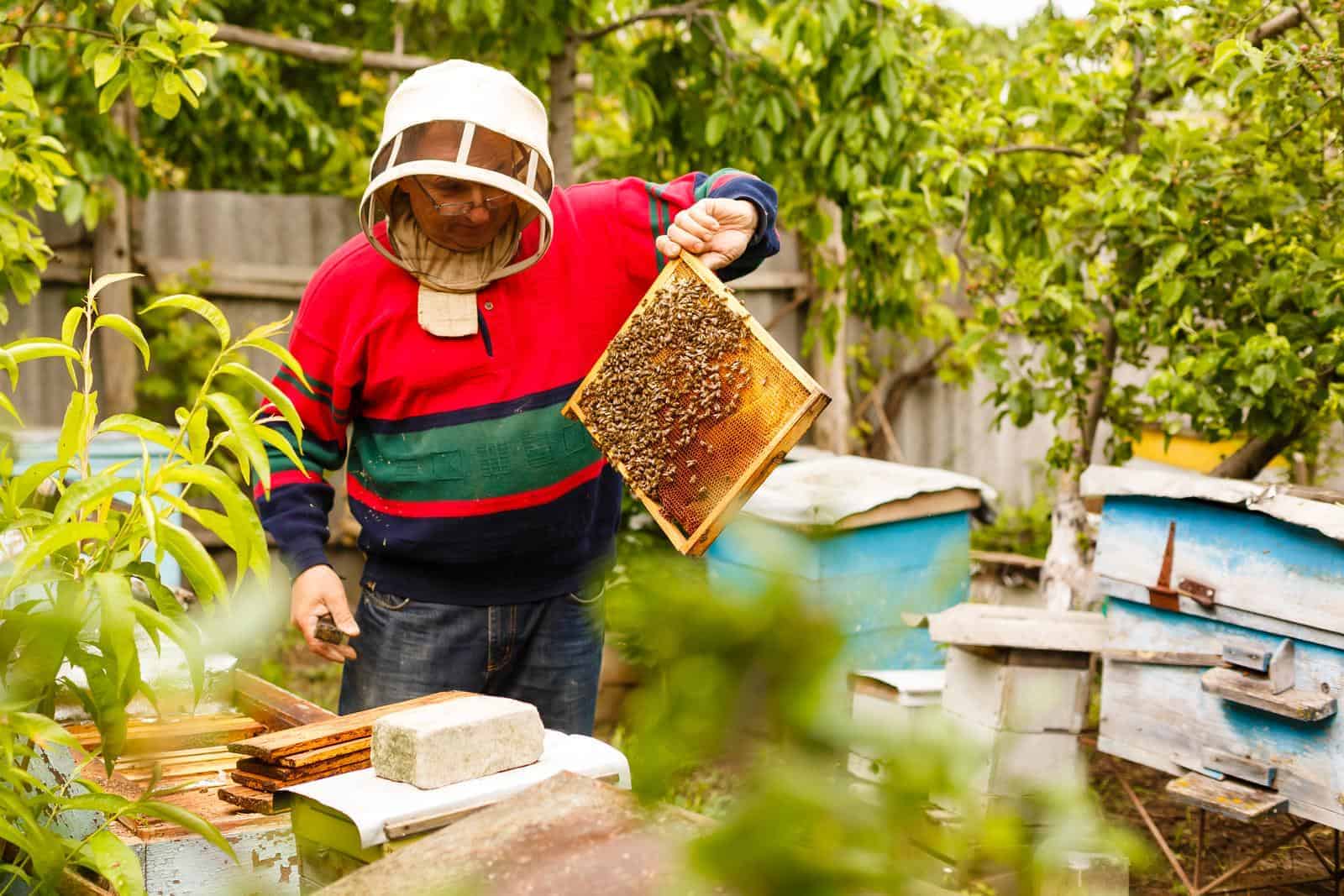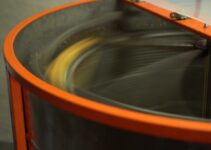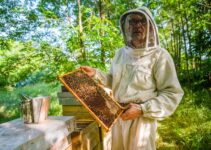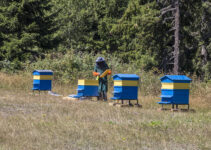3 Reasons Beekeeping is Good for the Environment?
1. As Pollinators.
By far the greatest benefit bees have to the environment is the fact that they help pollinate the plants around us. According to the US Department of Agriculture, a gob smacking 80% of all flowering plants (including fruits and vegetables) are pollinated by bees! The Food and Agricultural Organisation of the United Nations agrees, saying that 3 out of 4 crops in the world rely in some way on pollinators such as bees!
Without bees, many of our plants and flowers would lack the pollination they need to survive. This highlights just how important bees are to our eco-system. Many farmers will even rent out bees to help increase the speed and quality of their plants pollination. It can be quite a nice side business for beekeepers, I can tell you!
Bees are a massive part of sustainable food production in our world, and by keeping bees, we are supporting this and helping increase bee populations.
2. As Pollution Indicators.
The University of British Columbia did a study that concluded that we can get great insights into what pollutants are present in our air just by looking at the honey bees produce in the area. This is particularly beneficial in urban areas that may suffer from excessive pollution.
These early warning signs of pollution can be vital and by keeping bees, we are making this process and research much easier. That honey will be nicely presented in a beehive rather than stuck halfway up a tree 🙂
3. Good for Urban Areas
As well as being great for rural environments, bees are also great for urban areas. The Norwegian Institute for Nature Research did an extensive research project into ‘how enhancing urban
pollination promotes cultural ecosystem services in Oslo‘.
Included in some of their findings were the fact that urban bees greatly improve the quality of life of city dwellers, making it possible for them to have vegetable patches in their backyards, for example. Not to mention the fact that urban bees help make the cityscape look way nicer, with all the beautiful flowers and plant growth these pollinators promote.
Not only is this good for the physical environment of urban areas, but it also helps the wellbeing and mental state of the humans within it.
This Norwegian Institute loved urban bees so much they proposed something called ‘pollinator passage’ to aid their flight and ease their search for that sweet nectar and pollen they desire 🙂 They must be on to something!
Without urban beekeepers, urban bees would struggle to exist (apart from maybe in Oslo :)).
How is beekeeping bad for the environment?
1. Sustainability
In their natural state, bees are a sustainable and incredible part of our environment. However, this changes somewhat when we talk about beekeeping. The art humans have developed to capture and breed bees. This is because, for many beekeepers, the methods they use are not as sustainable as when bees live and develop in the wild.
It could be anything was buying beehives made from unsustainable wood to using pesticides to control disease in their hives that could potentially damage the surrounding area.
Add to this the fact that often many bees die when handled by beekeepers or from trying to keep them in man made beehives over winter.
Factors like this mean that traditional beekeeping is not as sustainable as we may think.
2. Lack of Diversity
Many beekeepers like to trumpet the fact that by keeping bees they are in fact saving the plight of pollinators and therefore helping the environment. Unfortunately, in reality, this is not always the case.
You see us humans like to domesticate honey bees so we can get their delicious and equally precious honey. It’s totally understandable! I love honey as much as the next guy! However, there are many more bee species than honeybees, and this diversity is vital for effective pollination.
You see, in the same way that we are not the same flowers and plants aren’t either. They are all kinds of different shapes and sizes, which requires different types of bees to efficiently get the nectar and pollen out of them.
Honey bees are great at getting pollen out of flowers and getting it mostly back to their hives. Although this is great for honey producing beekeepers, this isn’t as good when it comes to pollination. So wild bees are far better pollinators than honey bees.
If we are not careful, the honeybees in our apiary can actually harm the other bee species around. They are competing for the same food source, after all! So unless it is in abundance, the high concentration of honey bees in an area may result in other species dieing out or reducing. This is not good for bee (and therefore pollinator) diversity.
3. Transfer of Diseases
Beekeeping, as a practice, promotes the trading and exchanging of bees, sometimes over state lines. This trading means that any diseases these bees may be carrying will start to get transferred and spread to whatever new area they are sent to. These diseases can then be spread to the wild bees in the surrounding area, as well as the honey bees they live with.
Is Beekeeping Environmentally Friendly?
Beekeeping has the potential to be environmentally unfriendly if not well thought out. Managed bees in an apiary have the potential to crowd out wild bees, lessen the diversity of the bee population and even transfer diseases to the local area. A lot of people assume that beekeeping is friendly to the environment, but with some digging you will see it isn’t that simple.
What can be done? There is a growing trend for natural beekeeping, which promotes beekeeping in a more environmentally friendly way. If you combine this with some care to not overcrowd the local wild bee population, we can greatly boost the environmental friendliness of this hobby we love. Beekeeping is not doomed yet!





